Israel To Bomb Beirut Airport If Iran Smuggles Weapons: Report
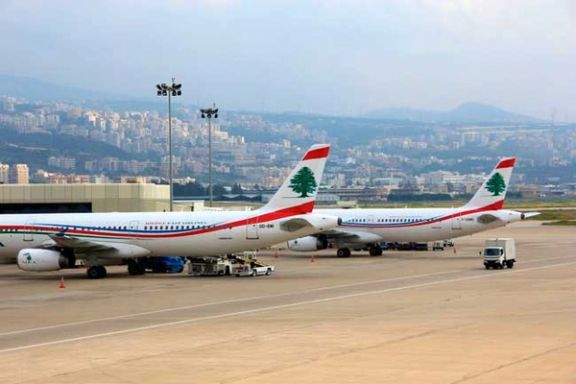
Israel has reportedly threatened to bomb Beirut’s airport if it is used by the Iranian regime to smuggle weapons.

Israel has reportedly threatened to bomb Beirut’s airport if it is used by the Iranian regime to smuggle weapons.
London-based Asharq Al-Awsat quoted on Saturday some political sources in Tel Aviv as saying that Israel will not be lenient with the transport of Iranian weapons through Beirut airport, warning to launch military strikes if the airport is used for Iranian ammo deliveries.
Israel was informed of a report broadcast by “Al-Arabiya Channel” about the Islamic Republic’s plans to use a new smuggling route for its weapons through Beirut after the failure of the Damascus corridor, sources told the daily.
They also added that Israel has launched a probe into Tehran’s attempt to smuggle weapons through civilian flights to Beirut airport.
Asharq Al-Awsat said they have also confirmed that Israel’s air raids on Syria in recent years helped prevent smuggling of Iranian weapons to its armed militias in Syria and in Lebanon.
This comes after a visit made by Hezbollah leader Hasan Nasrallah to Syria where he met Syrian President Bashar Assad two weeks ago.
The sources say Nasrallah discussed the difficulties faced by the Islamic Republic and Hezbollah in Syria because of the Israeli strikes there.
Israel has in recent months intensified strikes on Syrian airports and air bases to disrupt Iran's increasing use of aerial supply lines to deliver arms to allies in Syria and Lebanon including Lebanon's Hezbollah.
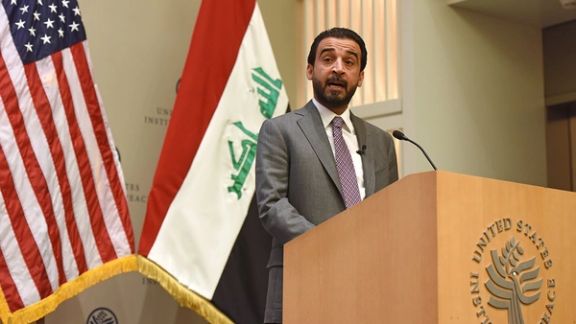
Iraq’s parliament speaker has recently confirmed that hundreds to thousands of people who went missing from 2014 to 2016 were kidnapped and killed by Iran-backed militias.
Speaker of the Council of Representatives Mohamed Al-Halbousi said in an interview with a local Iraqi TV December 7, that "We must tell people who these disappeared people are,” confirming that they are slain.
There were reports by Amnesty International in 2016 that Iraqi government forces and paramilitary militias tortured, arbitrarily detained, forcibly disappeared and executed thousands of civilians who had fled the rule of the Islamic State (ISIS) militant group. No official had ever confirmed the allegations.
Al-Halbousi said "the state must do justice to their families and include them in the list of victims of terrorism, and they should be considered for compensation,” adding that the government had been misleading their families since 2014. It would not be right to give their families false hope of their return, he said, noting that they were abducted and assassinated.
A member of parliament from the party led by al-Halbousi said, “Everyone knows that they are dead, but for years no one dares to be frank with people, especially the wives, mothers, and children of the victims.”
The Iraqi Observatory for human rights issued a statement in which it considered al-Halbousi's remarks as "an official announcement of their execution at the hands of armed militias during the expulsion of ISIS from Iraq."
According to the Amnesty report, Shia paramilitary groups and Iraqi government forces carried out revenge attacks on Sunni Arabs suspected of supporting ISIS, as Iraqi and Kurdish forces backed by US-led coalition began the battle for Mosul in August 2014. It added that Baghdad – which was especially close to the Islamic Republic at the time -- was complicit in "brutal revenge attacks" as thousands of older boys and men were rounded up, tortured and extrajudicially executed.
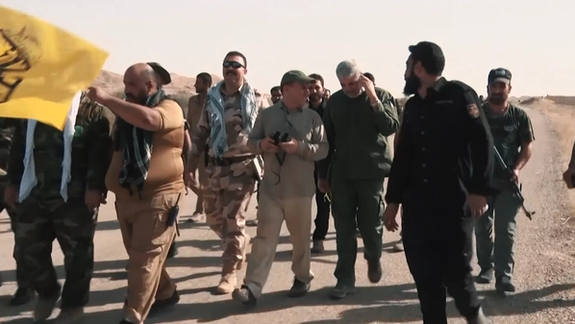
Numerous militia groups, most notably Hezbollah Brigades Asa'ib Ahl al-Haq, Badr, Kata'ib Sayyid al-Shuhada, Imam Ali, al-Khorasani, and Harakat Hezbollah al-Nujaba, are accused of being behind the mass killings. These militias were brought under the umbrella of the Popular Mobilization Units (PMU) in June 2014 and officially designated as part of the Iraqi armed forces in February 2016, but even before that they had enjoyed government support and backing.
“PMU militias have been responsible for a pattern of cases of enforced disappearance, abductions, torture and unlawful killings of captured and detained individuals in a climate of impunity,” the report said, adding that “Iraqi government forces have also directly committed violations including arbitrary detention, torture, unlawful killings and enforced disappearances.”
The number of victims is estimated at more than 22,000 from the cities of northern and western Iraq. Amnesty did not provide a total but said that “tens of thousands have been forcibly displaced.”
The report claimed that ISIS atrocities, armed conflict and insecurity led to the displacement of some 4.2 million civilians. Many fled with little more than the clothes on their backs, setting off at night to avoid detection and walking for hours.
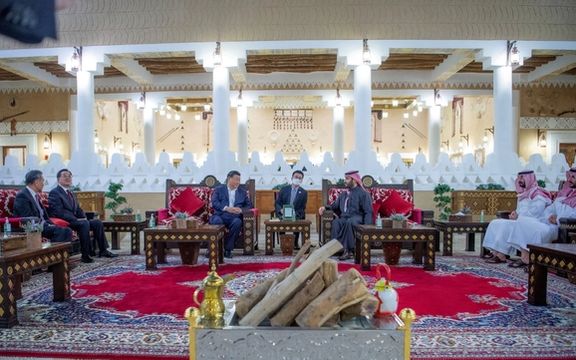
A joint statement at the end of Chinese President Xi Jinping’s visit to Saudi Arabia has led to a strong backlash by Iranians who read it as betrayal by Beijing.
In the statement, the Gulf Cooperation Council and the Chinese side made a reference to three small islands in the Persian Gulf that Iran took over as its historic territory in 1971 but the United Arab Emirates claims as its own.
After Britain withdrew its forces from the region and decided to give independence to the small Arab littoral Sheikdoms, Iran’s Mohammad Reza Shah decided to take over the Greater and Lesser Tunbs and Abu Mousa. The UAE was just being formed and there was a serious political and military vacuum on the Arab side of the Persian Gulf.
Among other things, the concluding statement of the meeting that was attended by GCC dignitaries as well as the visiting Chines President Xi Jinping said: "The leaders affirmed their support for all peaceful efforts, including the initiative and endeavours of the United Arab Emirates to reach a peaceful solution to the issue of the three islands; Greater Tunb, Lesser Tunb, and Abu Musa, through bilateral negotiations in accordance with the rules of international law, and to resolve this issue in accordance with international legitimacy."
The Iranian official news agency did not translate this part of the statement in its report about the GCC meeting, but Iranians on social media were already harshly criticizing their government for a major failure. They asked the clerical rulers, what exactly went wrong that its ally, China acquiesced to such a statement.
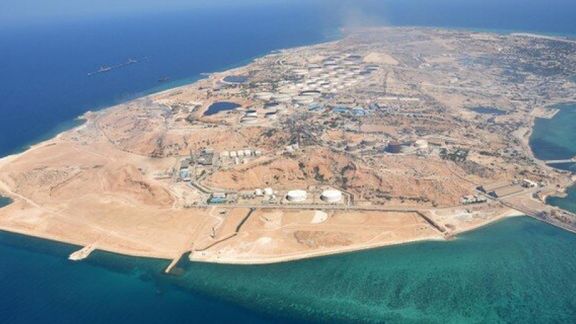
Later on Saturday, Tehran had no choice but to start to react. Iran's Foreign Minister Hossein Amir-Abdollahian wrote in a tweet: "The three Persian Gulf islands are inseparable parts of Iran and are part of the eternal belongings of our motherland. We firmly insist on the need for respecting Iran's territorial integrity." The foreign ministry also invited the Chinese ambassador in Tehran to a meeting and expressed its displeasure about the statement.
The opponents of the Islamic Republic have been arguing for decades that Tehran should establish normal relations with the West and not isolate itself relying on meagre support from China and Russia. Now, these critics found the perfect example to slam the government for putting itself in this latest humiliating position.
Following the issuance of the statement, former Iranian diplomat Abdolreza Faraji Rad told Entekhab news website in Tehran: "It is unlikely that China would be the same for Iran following this statement. I have never imagined before that China would ever take a step against Iran's interests."
Faraji Rad added: "If this trend in China's behavior continues, in less than a decade, China will cause as much as concern for Iran as America does." The former diplomat also said: "It appears that China has given up its 25-year cooperation deal with Iran."
Foreign policy commentator Diako Hosseini tweeted: "Xi Jinping's contribution to the GCC statement about the three islands was an unfriendly behavior against Iran's territorial integrity and against China's claim of not interfering with the internal affairs of other countries. Summoning China's ambassador to the Foreign Ministry and demanding an official apology is the least that should be done."
However, foreign Policy analyst Amir Ali Abolfath tweeted that "warm relations between Saudi Arabia and China will serve Iran's interests if it leads to a reduction in US influence in Saudi Arabia."
Iranian journalist Sadra Mohaqeq wrote: "Iran's official stance about the ownership of the three islands has always been that Iran's ownership of the islands cannot be questioned. Calling on Iran to negotiate about this non-negotiable issue is a direct intervention in Iran's internal affairs and undermines Iran's territorial integrity."
Iranian analyst Ali Hossein Ghazizade wrote in a tweet: "The three Persian Gulf islands have been the subject of the most important security threats against Iran in recent decades. The Chinese, as the Islamic Republic's strategic allies did not stand by Iran. Do people still believe that Iran's territorial integrity will be preserved with such allies?"
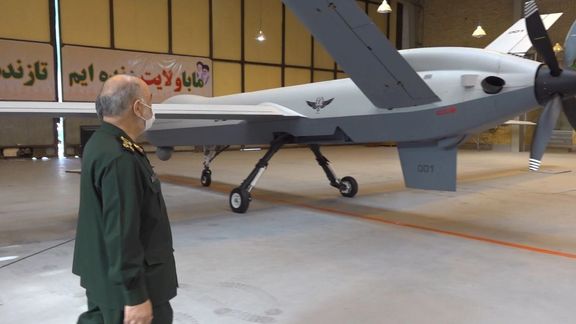
A day after Nato’s chief said war in Ukraine could ‘spin out of control,’ US spokesman John Kirby said Russia was offering Iran “unprecedented” military support
Jens Stoltenberg, secretary general of the 30-member Nato, warned of the dangers of Ukraine-Russia fighting escalating into a conflict between Russia and the US-led alliance.
Kirby, the White House security spokesman, charged Friday that Moscow was “seeking to collaborate with Iran on areas like weapons development and training,” and said Washington was “concerned that Russia intends to provide Iran with advanced military components.”
Kirby left analysts to speculate that Iran was interested in S400 air-defense systems, which could be useful against US or Israel attacks. Moscow has exported S400s to Turkey, a Nato member, and is currently transferring the system to India. Saudi Arabia reportedly shelved plans to buy S400s in 2021.
After decades trying to develop domestic arms production under international sanctions, Iran may see further potential in Moscow. “Senior [US] administration officials” have been widely quoted that Russia is ready to send Sukhoi SU-35 fighter jets to Iran, which has been unable to acquire modern fighters since the 1990s.
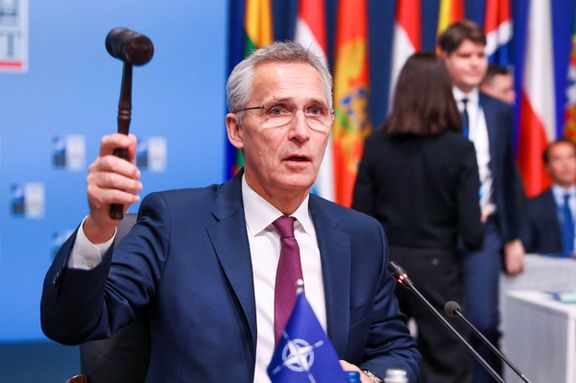
While the SU-35 would be no match for jets held by regional powers, including Israel’s US-made F-35s or the European and US planes of the Persian Gulf Arab states, they would represent an upgrade on Tehran’s Cold War-era US-made F-4 Phantoms, F-14 Tomcats, and F-5 Tigers and their locally-made versions.
Iranian weapons to Russia?
Contradictory accounts emerged this week on arms going the other way. After Kirby was one of two US officials saying on-the-record Wednesday that US had no evidence of Iran transferring missiles to Russia for use in Ukraine, the Washington Post Saturday quoted a US “military official” and an official “from a Nato member state” that Russia had acquired Iranian ballistic missiles.
Ned Price, the US State Department spokesman said Wednesday it was not the US assessment that Iranian military support could “tip the balance” in the Ukraine war.
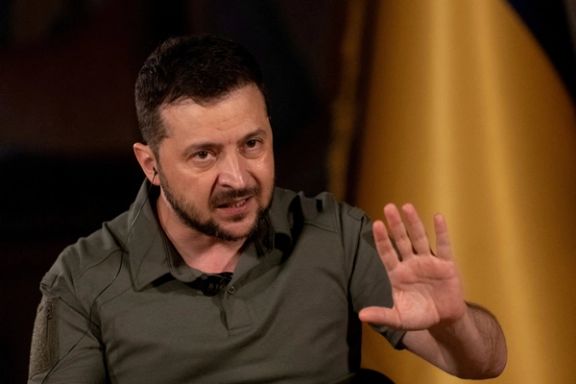
But the US official quoted by the Post also said Iran would receive “up to $1 billion, in addition to other, still unknown inducements,” for establishing drone productions inside Russia – which would be welcome foreign exchange for Tehran, which has billions in oil revenue frozen abroad by banks wary of US punitive sanction under Washington’s ‘maximum pressure’ sanctions.
Presumably ahead of this drone production beginning in Russia, Iran had agreed to supply “up to 6,000 aircraft,” the official claimed, presumably meaning drones. The Post quoted a second official that Iran had agreed to supply “thousands”.
There were reports Saturday morning that Russian forces had the previous night launched at Ukrainian targets a dozen Iranian-made drones, mostly shot down. This came after a lull in their use since mid-November put down by Ukrainian officials either to Russia running out of supplies or the drones malfunctioning below zero degrees Celsius.
US arms to Ukraine now at $20 billion
The US announced Friday the 27th batch of US weapons for the Ukrainian armed forces, bringing the total supply since February to over $20 billion. Despite the European Union sending $2 billion in arms to Ukraine, Kyiv has criticized France and Germany for not sending enough.
The United Kingdom – whose foreign minister James Cleverly Friday spoke of “sordid deals” between Iran and Russia – has sent $2.3 billion in weapons to Ukraine and intends to match that figure in 2023. Ukraine has used military drones from Turkey and the US, as well as the Soviet-era drones used this week to attack infrastructure deep within Russia.
With Stoltenberg saying Wednesday that any terms to end the conflict should be decided by Ukraine, its president Volodymyr Zelenskyy said Saturday that the city of Bakhmut was now “burnt ruins.” In the week he was named Time magazine’s ‘Man of the Year’ and Politico’s “most powerful person in Europe,” Zelenskyy accused Russia of genocide.
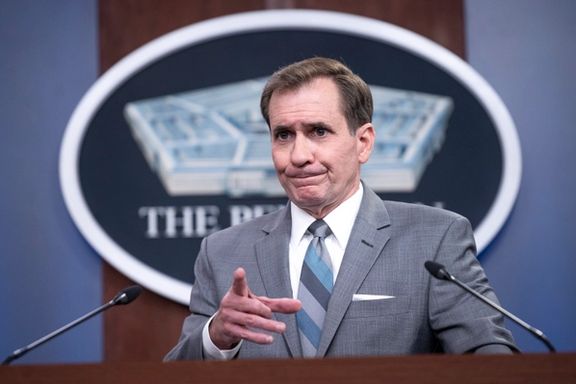
The United States announced new military aid for Ukraine Friday and vowed to disrupt Russian Iranian ties, including the possible supply of missiles by Tehran.
White House national security spokesman John Kirby told reporters Washington was very concerned about the "deepening and burgeoning defense partnership" between Iran and Russia, and would work to disrupt that relationship, including on drones.
Earlier, Barbra Woodward, the British envoy to the United Nations said Friday Moscow is seeking hundreds of ballistic missiles from Tehran and offering unprecedented military support in return.
Woodward said Iran had sent hundreds of drones that Russia had used in Ukraine.
Iran has already supplied Kamikaze drones to Russia that have been used to attack civilian infrastructure in Ukraine, including the power grid.
Tehran and Moscow have denied Western accusations that Russia is using Iranian drones to attack targets in Ukraine, where officials warned on Friday of a winter-long power deficit after repeated Russian attacks on its energy infrastructure.
Two senior Iranian officials and two Iranian diplomats told Reuters in October that Iran had promised to provide Russia with surface-to-surface missiles as well as more drones.
Washington was sending a $275 million package of aid to Ukraine to strengthen air defenses and defeat drones, he said.
"Russia is now attempting to obtain more weapons, including hundreds of ballistic missiles," Woodward told reporters. "In return, Russia is offering Iran an unprecedented level of military and technical support."
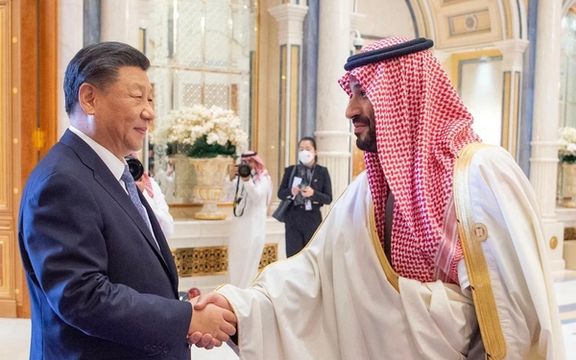
China’s foreign ministry this week called President Xi Jinping’s Riyadh visit the “largest-scale” diplomacy between the People’s Republic and the Arab world.
A 4,000-word joint statement from Saudi Arabia and China Friday, published by the official Saudi Press Agency (SPA), expressed common approaches on security, oil, and Iran’s nuclear program as well as a shared commitment to non-interference in countries’ internal affairs.
The statement said talks had discussed a “comprehensive partnership” and “continuing joint action in all fields” to set an “example of cooperation, solidarity and mutual gain for developing countries.”
The two sides agreed “on the need to strengthen cooperation to ensure the peaceful nature of Iran’s nuclear program,” calling on Tehran to cooperate with the International Atomic Energy Agency (IAEA) and to “maintain the non-proliferation regime.”
Speaking about Iran, they also emphasized “respect for the principles of good- neighborliness and non-interference in the internal affairs of states,” a clear win for Riyadh, while Iran regards China a close ally.
The statement’s section on Iran exemplified Beijing and Riyadh taking a transactional approach in finding common areas. While China has taken part with other world powers since March 2021 in talks to revive the 2015 Iran nuclear agreement, the JCPOA (Joint Comprehensive Plan of Action), Saudi Arabia has been skeptical of the agreement and wary of Iran’s regional links, including to Yemen’s Ansar Allah, or the Houthis.
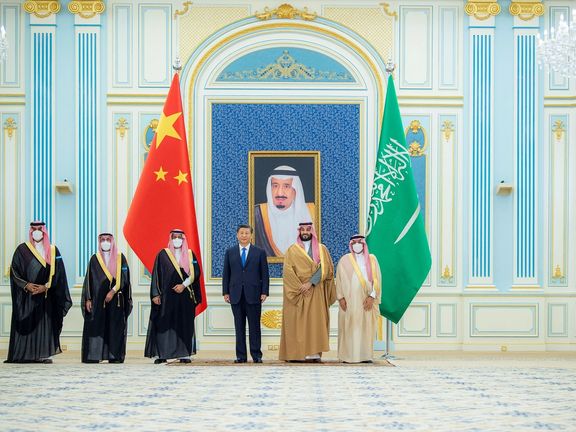
Washington has reacted warily to Xi’s three-day visit, on which he was received far more lavishly than was President Joe Biden in July. While some Arab lobbyists have insisted Gulf-US relations are as close as ever, Gulf officials have suggested US policy is incoherent, and rife with double standards.
The joint Saudi-China statement expressed support for an independent Palestinian state on the terms of the 2002 Arab Peace Initiative, effectively rejecting the US-sponsored ‘normalization’ with the Israeli state undertaken since 2020 by the United Arab Emirates, Bahrain, Sudan and Morocco.
Still perturbed by the Saudi-Russia October agreement through Opec+ to cut global oil production, many US analysts are clearly uncomfortable. In the Washington Post Friday, columnist Henry Olsen argued the US needed to “emphasize our material security interests over our moral interests” in order to combat “China’s rising influence…throughout the Middle East.”
‘Usurp the US influence’
Olsen suggested Beijing could “usurp the United States’ influence…[and] could coerce the region’s kingdoms and dictatorships to use their production of fossil fuels against the West.” Sure enough, the joint Saudi-Chinese statement noted the “great foundations of the cooperation due to the Kingdom’s ample oil resources and China’s broad markets.” It also stressed the importance of stability in world oil markets, reflecting language used by Saudi officials to justify the Opec+ decision in October.
But the statement stressed the further opportunities that could be opened up through aligning Beijing’s Belt and Road Initiative with Saudi Arabi’s Vision 2030. Bilateral trade reached $87 billion in 2021 and China is keen to extend infrastructure investment, including in Saudi Arabia’s $500-billion NEOM city in the north west.
The US is concerned not just at Saudi-China ties, and at talk of the two reducing the use of the dollar in bilateral trade, but at the growing links between Beijing and the Gulf Cooperation Council (GCC). During his three days in Riyadh, Xi attended the inaugural China-GCC summit and, separately, the first Arab-Chinese summit, which involved the 22 members of the League of Arab states, including the President of the Palestinian National Authority. A plethora of bilateral meetings took place on the side-lines of both.
Twenty Arab counties have cooperation agreements under China’s Belt and Road initiative. Last year 51 percent of China’s oil imports came from Arab states, four-fifths of these from the GCC, while it has this year continued to buy 500,000-1 million barrels of oil a day from Iran despite the US threatening to penalize Chinese buyers under its ‘maximum pressure’ sanctions. In November China’s state-owned Sinopec signed a 27-year agreement to buy liquefied natural gas from Qatar.
In strengthening links in defense and security, the UAE has bought Chinese battlefield drones. Saudi agreed in March to manufacture Chinese drones domestically, while Riyadh, which already has Chinese ballistic missiles, is reportedly also enlisting Beijing’s help in developing a domestic ballistic missile program.